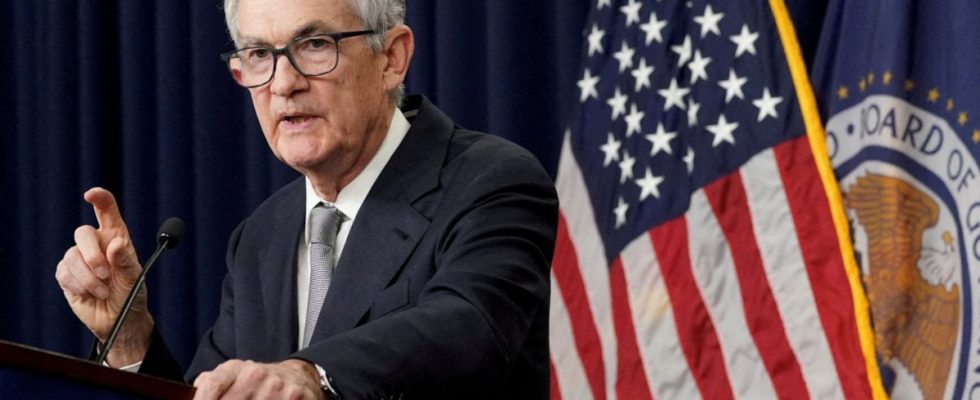Fed Chairman Jerome Powell would probably not announce anything new this Wednesday evening. But because Powell heads the most powerful central bank in the world, this is of course still news. For the third time in a row, he and his colleagues would not announce any further interest rate increases. The US key interest rates remained in their previous range of 5.25 to 5.50 percent until at least the end of January.
Anything else would be a big surprise. Neither economists nor analysts at the major US banks expect a continuation of the restrictive monetary policy with which the Federal Reserve has raised key interest rates since the summer of 2022 to the highest level since 2001.
The American Department of Labor provided an important argument for this course one day before the interest rate decision: Inflation fell to 3.1 percent in November. For food it is only 2.9 percent. It is now clear: Price increases have been leveling off at a level for several months that is still above the Fed’s target of two percent inflation, but cannot be compared with the very high values of the past and year before last.
At the same time, the USA was spared a recession and high unemployment despite the interest rate increases. The American economy is on track for a soft landing, Treasury Secretary Janet Yellen said this week. An assessment that many experts share. A year ago it was unclear whether the high inflation could be reversed without pain, according to an analysis by the investment bank Goldman Sachs. “But now it looks as if these problems have mostly been solved.”
And what about interest rate cuts?
This makes another question seem more and more pressing: When will the US Federal Reserve abandon its current course and lower key interest rates again? Despite the positive development of the economy, high interest rates represent a burden for companies and consumers. Companies can therefore afford fewer investments. Consumers, for example, suffer from the high interest rates on real estate, which are currently over seven percent for a 30-year loan.
The chief economist at Goldman Sachs believes two interest rate cuts are likely over the next year. Inflation has developed more positively than expected, he said. Other analysts put it even more clearly. His colleague from Bank of America calls for a reversal of the debate towards interest rate cuts in a message to the bank’s customers.
The central bankers around Jerome Powell have not yet wanted to get involved in this. It is still far too early to speculate about easing monetary policy, Powell said in a speech in Atlanta last week. His colleague John Williams from the New York Federal Reserve agreed with him: the Fed’s course must remain restrictive for a while.

